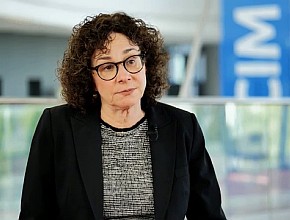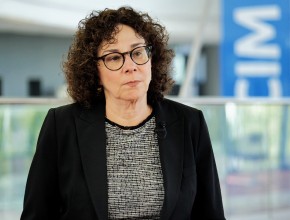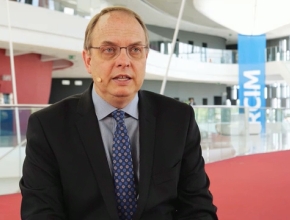Dr Mark Crowther is a professor and chair of the Department of Medicine and the Leo Pharma Chair in Thromboembolism Research at McMaster University.
What should be the treatment of cancer-associated thrombosis?
Mark Crowther, MD, MSc: The treatment of cancer-associated thrombosis is a huge change in the last 24 months. The CLOT (Comparison of Low-Molecular-Weight Heparin Versus Oral Anticoagulant Therapy for the Prevention of Recurrent Venous Thromboembolism in Patients with Cancer) study, which was performed in the early 2000s and published in The New England Journal of Medicine, had established low-molecular-weight heparin (LMWH) as the standard therapy. Patients were treated with extended-duration LMWH for at least 6 months and oftentimes much longer.
There have recently been 2 studies performed—one very large study, one smaller study—which have looked at whether or not you can safely use the direct oral anticoagulants (DOACs). Those studies came to very, very congruent results and suggest that the DOACs are very reasonable both from a safety and efficacy perspective for the prevention of recurrent venous thromboembolism in the majority of patients with cancer. So, if you had a 65-year-old woman who had breast cancer and had an episode of deep vein thrombosis (DVT), in 2019 it would be perfectly acceptable to use either a DOAC, rivaroxaban or edoxaban, where the biggest research was done, and probably apixaban—although we will not have evidence for that until later this year when the CARAVAGGIO study is published—or you could use LMWH.
As time passes and the complexity of using LMWH becomes apparent to people, I think that almost all patients will eventually end up receiving a DOAC instead of receiving LMWH. That is a big change over previous recommendations and it is based on reasonably good-quality evidence from 2 studies.
 English
English
 Español
Español
 українська
українська










